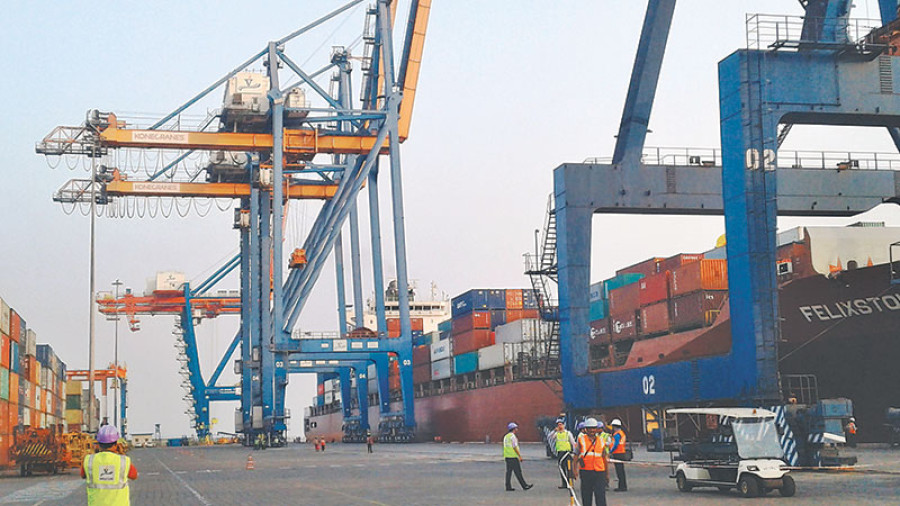Money
Lack of consulate at Vizag delays shipments
Nepal urgently needs to establish a consular office at Visakhapatnam port in India to make life easier for traders, officials said. Currently, Nepali importers bringing goods from third countries have to get their paperwork processed from the Nepal Embassy in faraway New Delhi as there is no consulate at the port, which is an ordeal for them.
Shankar Acharya
Nepal urgently needs to establish a consular office at Visakhapatnam port in India to make life easier for traders, officials said. Currently, Nepali importers bringing goods from third countries have to get their paperwork processed from the Nepal Embassy in faraway New Delhi as there is no consulate at the port, which is an ordeal for them.
Basanta Kant Chaudhary, CEO of Himalayan Terminals at Sirsiya dry port in Birgunj, said that the volume of Nepal-bound container traffic from Visakhapatnam was equal to that from Kolkata port, the traditional transit point for Nepal’s imports from third countries.
As a result, importers who had started rerouting their shipments through Visakhapatnam port due to clearance delays and congestion at Kolkata port were going back to Kolkata.
“It takes two months to dispatch a container from Visakhapatnam due to delays in the documentation process,” said Chaudhary. According to him, more than Nepal-bound 1,400 containers are stuck at Visakhapatnam port due to paperwork hassles.
Importers have been urging the government to establish a consulate in Vishakhapatnam for a long time, but nothing has happened. Indian authorities too have been repeatedly requesting Nepal to open a consular office at Visakhapatnam.
The transportation of Nepal-bound cargo from Visakhapatnam port to Sirsiya dry port began in June 2017, breaking the long-standing monopoly of Kolkata port in Nepal’s overseas trade.
Visakhapatnam port used to handle 300,000 containers annually when it started operations in 2003. Currently, the port handles 700,000 containers annually. The port administration has targeted handling 2 million containers annually.
Visakhapatnam, unlike Kolkata, does not need a customs agent house as international shipping lines like Maersk Line, BLPL, Austere Logistics and Port Trade Shipping are transporting goods from third countries to Nepal. These companies also provide services like transporting containers to Sirsiya dry port in Birgunj.
Visakhapatnam is closer compared to other international ports, which means reduced transport costs for importers.
The administration of Visakhapatnam port claimed that Nepali importers can save up to IRs100,000 per container and ship way charges of $200 to $250 while importing goods through Visakhapatnam.
Similarly, Nepali importers can benefit by saving time on transportation.
Spread over 200,000 square feet, Visakhapatnam port is a deep water port and can handle large vessels. It has a water depth of 16.5 metres and can accommodate ships carrying 10,000 to 12,000 containers. Mother vessels can easily arrive at this port from China and South Korea due to its deep water.
Subodh Kumar Gupta, vice-president of the Birgunj Chamber of Commerce and Industry, said that Kolkata port was still comparatively cheaper than Visakhapatnam for Nepali importers. Nepali importers, the Nepal government and Indian stakeholders need to work to obtain more benefits from Visakhapatnam port, Gupta said.




 9.89°C Kathmandu
9.89°C Kathmandu















